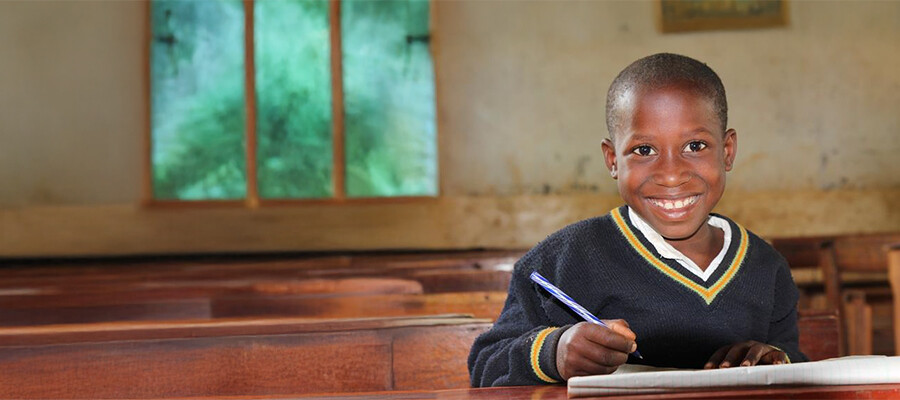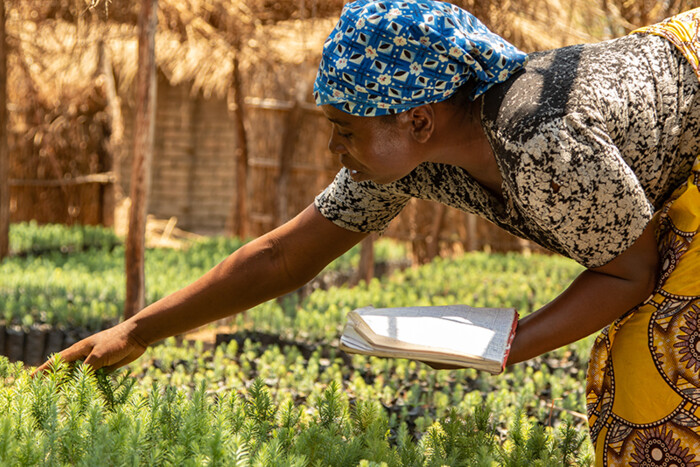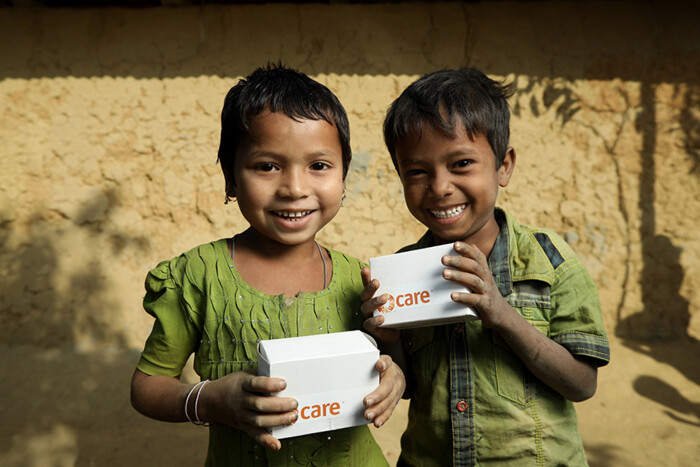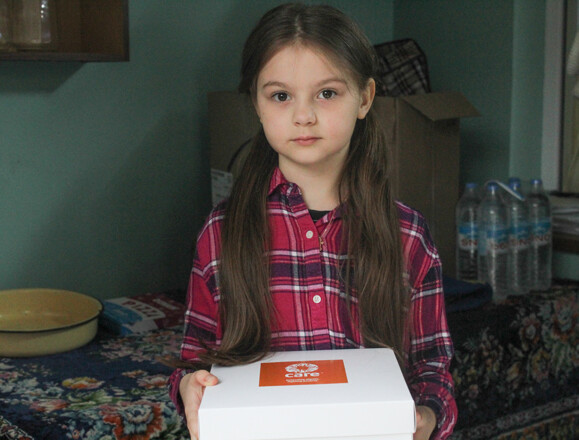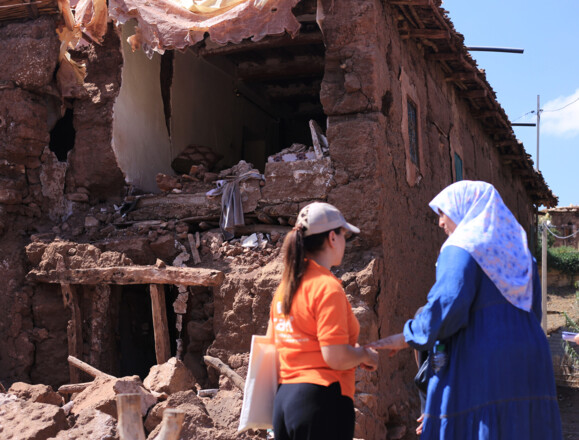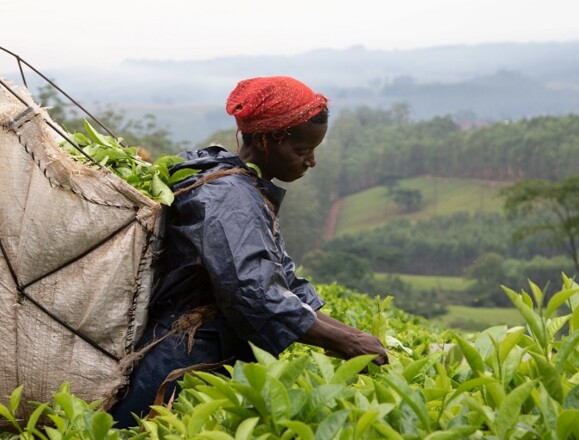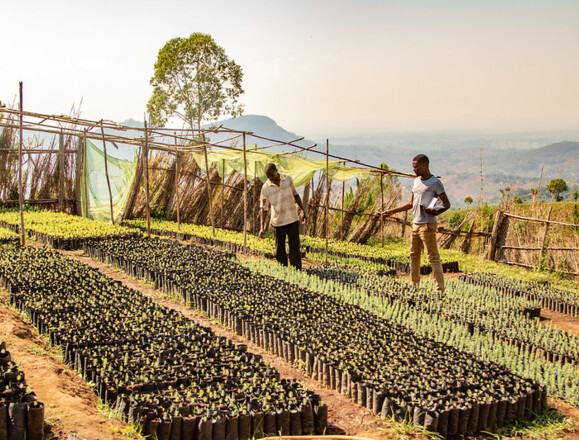At AP Sensing, we’re committed to protecting not only your assets—whether it’s your power grid, tunnel, or rail network—but also the world around us. As a successful company, we contribute to social and environmental initiatives through the dedication of our employees and partners, whose efforts are central to our success.
Passion for Plants
Since many years, we have committed to planting 100 trees for every fiber optic sensing interrogator (DTS/DAS/DTSS) sold, and additional trees to offset our business travel. Partnering with the non-profit WeForest, we support reforestation projects in Malawi, improving air quality, reducing pollution, combating climate change, and promoting biodiversity.
Our passion goes beyond serving our customers; we are deeply committed to corporate social responsibility and preserving our planet through our Passion for Plants initiative.
As of Decmber 2025, we have planted 414,453 trees.
Why is AP Sensing Planting Trees?
- Climate Protection: Trees absorb carbon dioxide, helping to reduce the effects of climate change through carbon sequestration.
- Forest Restoration: Planting trees helps restore degraded ecosystems, improving biodiversity and protecting vital habitats.
- Social Impact: Tree planting supports local communities by creating sustainable livelihoods, improving water retention and soil quality, and promoting sustainable agriculture.
About the Project - Malawi
Despite being protected since 1927, the Mount Mulanje Biosphere Reserve in southwest Malawi faces deforestation due to poverty, population growth, and rising demand for land and energy. Our project aims to reverse deforestation by engaging 13,500 families in community-based forest management to restore over 7,500 hectares of forest. New income opportunities, like beekeeping and sustainable agroforestry, further reduce pressure on forest resources while introducing improved cookstoves and sustainable fuelwood sources.
Over the years, our Christmas donations have helped fund projects like:
- 2025: Supporting CARE’s life-saving work in Ukraine
- 2024: Ukraine emergency humanity aid
- 2023: Somalia sustainable school meals & education
- 2023: Morocco earthquake emergency aid
- 2022: Ukraine emergency humanity support
- 2022: Education and protection for Syrian and Jordanian children
- 2021: Support for refugees in Dadaab, Kenya
- 2020: Humanitarian aid for families in Northwest Syria
- 2019: Education in Nairobi, Kenya
- 2018: Rehabilitation and care for child soldiers in Southern Sudan
- 2017: Engineering education support in Somalia
- 2016: Training programs for Syrian refugee families in Jordan
- 2015: Aid for Syrian Refuges
- 2014: School construction and nutrition improvement for students in Bolivia
- 2013: Early childhood education and dental care for refugee children in Kenya
Responsible Supply Chain of Conflict Materials
AP Sensing is committed to ethical sourcing. In compliance with the Dodd-Frank Act (Section 1502), we ensure that our supply chain is free from conflict minerals, which include tantalum, tin, tungsten, and gold, typically mined in the Democratic Republic of Congo and surrounding countries. These materials, often linked to funding armed conflict, are not used in our production process.
For more details, you can read our complete policy on the global supply chain of conflict minerals here.
Social Corporate Responsibility
At AP Sensing, we are committed to upholding the highest standards of social responsibility in every aspect of our business. Our Social Corporate Responsibility Policy outlines our dedication to ethical practices, human rights, environmental sustainability, and integrity in our relationships with employees, customers, and business partners worldwide.
To learn more about our approach and principles, you can view the full policy here:
Whistleblow Guidelines
AP Sensing promotes a culture, in which sensitive topics can be discussed openly and encourages its employees and third parties to report possible grievances within the company or violations of legal regulations without suffering retaliations. Reliable information helps us to counteract at an early stage and prevent damage to our company, our employees and our business partners.
Information can be submitted in the following ways:
AP Sensing employees by filling out a form here (Prerequisite is a connection with the AP Sensing IT Network, e.g. via VPN)
Via mail to compliance@apsensing.com
Per post to: AP Sensing GmbH, Compliance, Herrenberger Str. 130, 71034 Böblingen, Germany
In person to: AP Sensing Whistleblow Protection Officer: Nicole Paredes
